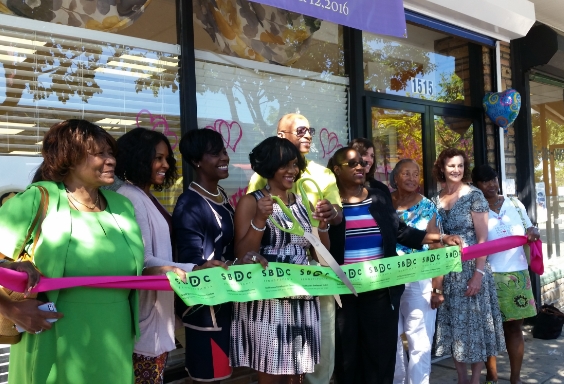Editor’s Note: In celebration of Black History Month, Entrepreneur Works is sharing the stories and impact of Black-owned businesses in our region throughout February.
Source: Philly.com, February 2017
The next time you plop down in a cushy chair, consider the story of Warley Bascom & Sons, at one time the oldest continually operating black-owned business in the city.
The firm’s story began in Charleston, S.C., with the antebellum arrival of Warley Bascom, a free Madagascan.
A “bed-man” by training – i.e., a mattress-maker – Bascom married Sophia Bonheur and soon boasted 11 children.
As one of 1.5 million free black souls living in Southern states, Bascom presciently sought more northerly climbs.
He dispatched a son to Philadelphia in 1859 to prepare a safer home for the family. Two years later – as Fort Sumter fell under fire – Bascom and Co. boarded a ship bound for the Quaker City. He immediately struck out on his own.
“Warley Bascom & Sons, Upholsterers and Interior Decorators” read the marquee outside his original shop at 261 S. Eighth St.
Even with freedom, work experience, and some venture capital in the form of his modest savings, the entrepreneur’s success was far from guaranteed.
Beginning a business during wartime is difficult enough, even in industries that arm and supply troops. Further ruffling Bascom’s efforts, a silky smooth tradition of textile producers and artisans already marked 19th-century Philadelphia. This mature market was threaded through with competitors advantaged with an easier access to credit, customers, and commodities needed to ply the trade.
Add to these economic obstacles the political and social hurdles of being a black out-of-towner with few Philadelphia connections. But Bascom was nowhere near as soft as his wares.
“It was a familiar sight to see him driving a wagon load of green moss gathered from the woods to his shop where it was dried,” recorded Elizabeth Powers, the firm’s unofficial chronicler.
For Bascom, the upholstery business stretched far beyond replacing dirty bits of divans and righting wobbly legs. It meant designing drapes and slip covers, sewing carpets, dyeing fabrics, shaping shades, and decorating entire rooms. It meant training scores of fellow African Americans in what, to Bascom, was an art as fine as fresco.
The scope of early customers testifies to the firm’s artisanship. It was on a Bascom-made bed that the ill and injured slept during their stays at Pennsylvania and Jefferson Hospitals.
One moment in particular offers up Bascom in a stitch.
Spotting a pedestrian caught in a sudden storm, Bascom invited the sodden stranger to seek refuge in his shop. The figure was Kellub Cope, president of the Philadelphia Saving Fund Society (PSFS). The result, after a quick chat? Cope gave Bascom all of the bank’s business, with a vow that it would continue, “as long as there is a Bascom in the upholstering business.”
Cope’s promise lasted longer than the banker himself. “If you have noticed those blue upholstery chairs in the bank at South 12th Street, you have seen our workmanship,” reminisced Ethel Bascom Sarjeant, Bascom’s granddaughter, still fulfilling orders from PSFS in 1970.
After Bascom’s passing in 1909, his sons relocated the workshop to 247 S. 10th St., where it would remain.
Neither the Great Depression nor the rationing of both world wars snagged the upholsterer.
“Throughout the metropolitan area and Main Line, the firm is known for its integrity, the use of superior materials, and the last word in expert workmanship,” observed a 1943 edition of Bryn Mawr’s Home News.”
Bascom spurned paid adverts. “Win the good opinion of the people you work for, they invariably recommend you to their friends, if they are satisfied,” ran Bascom’s slogan and marketing ethos.
The firm’s official style, Warley Bascom & Sons, would become a misnomer in 1961, when Ethel Sarjeant assumed control. A retired schoolteacher, she operated the firm until 1974, all with the help of only three workers.
With a daughter that pursued a career in social work instead of upholstery, Sarjeant found herself as the first Bascom without a workbench heir.
“Oldest black business in city is up for sale,” ran the Tribune’s 1970 headline.
The legacy of Warley Bascom & Sons lives on in its records housed at the Historical Society of Pennsylvania, and in the spirit of the city’s newest black entrepreneurs.
“Generation after generation of Bascoms did not wait for opportunity to knock,” Powers continued. “They made their own opportunities.”


